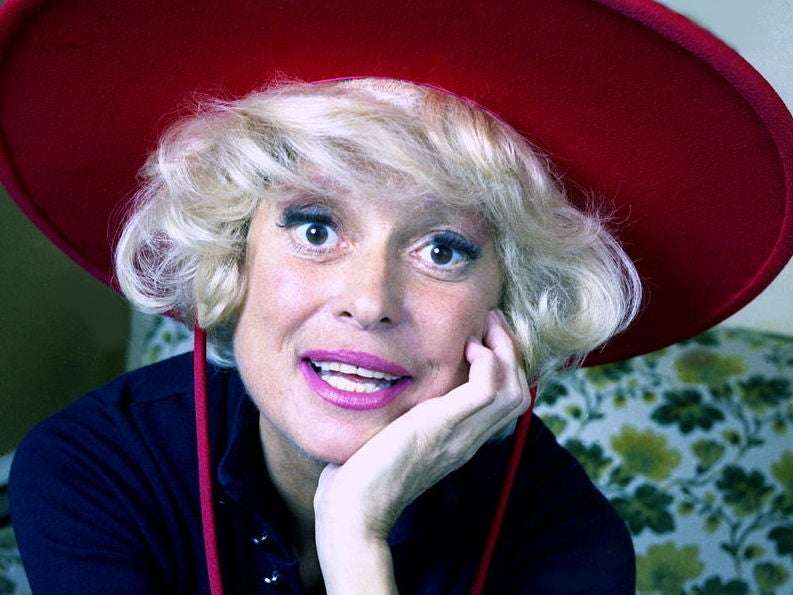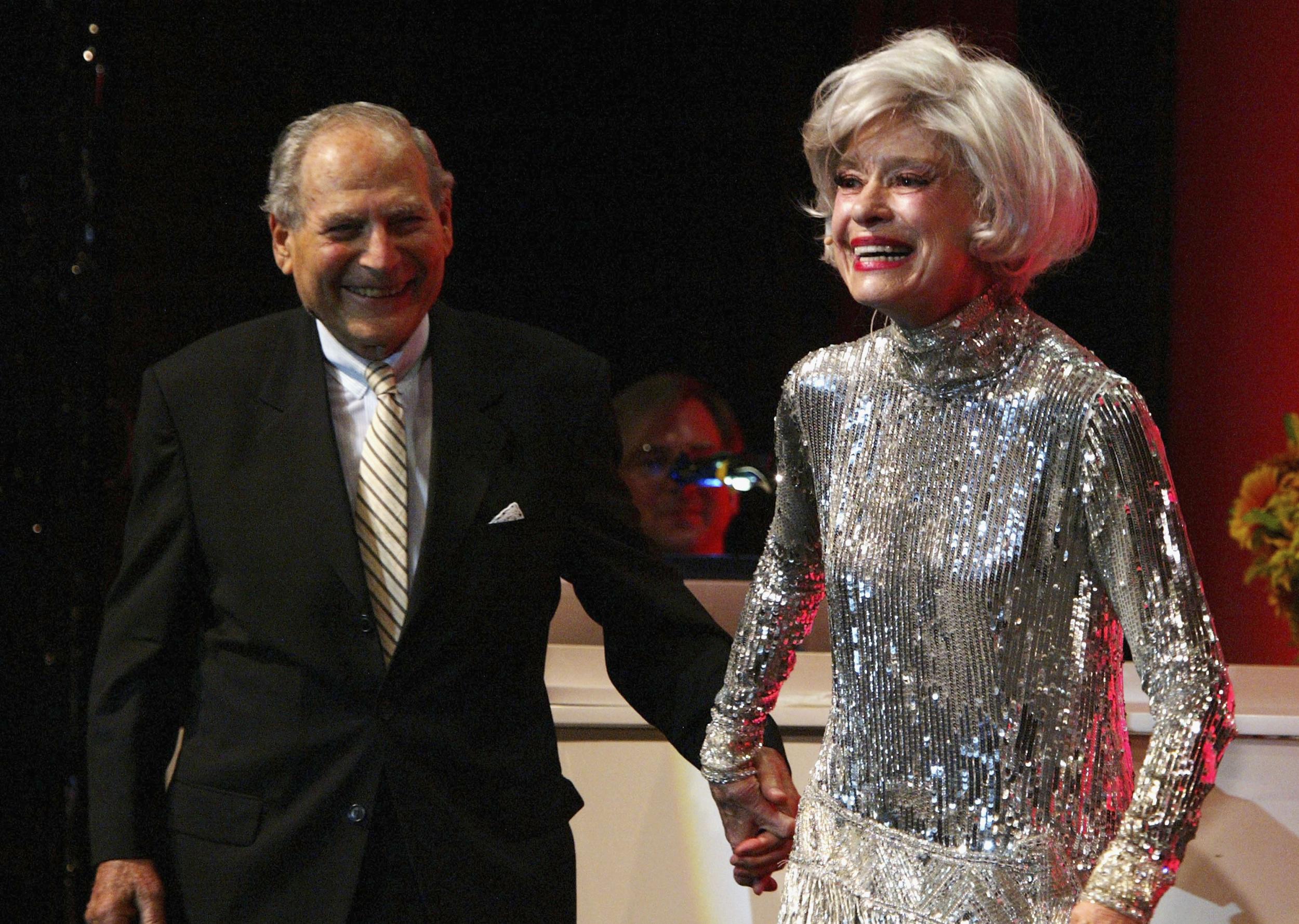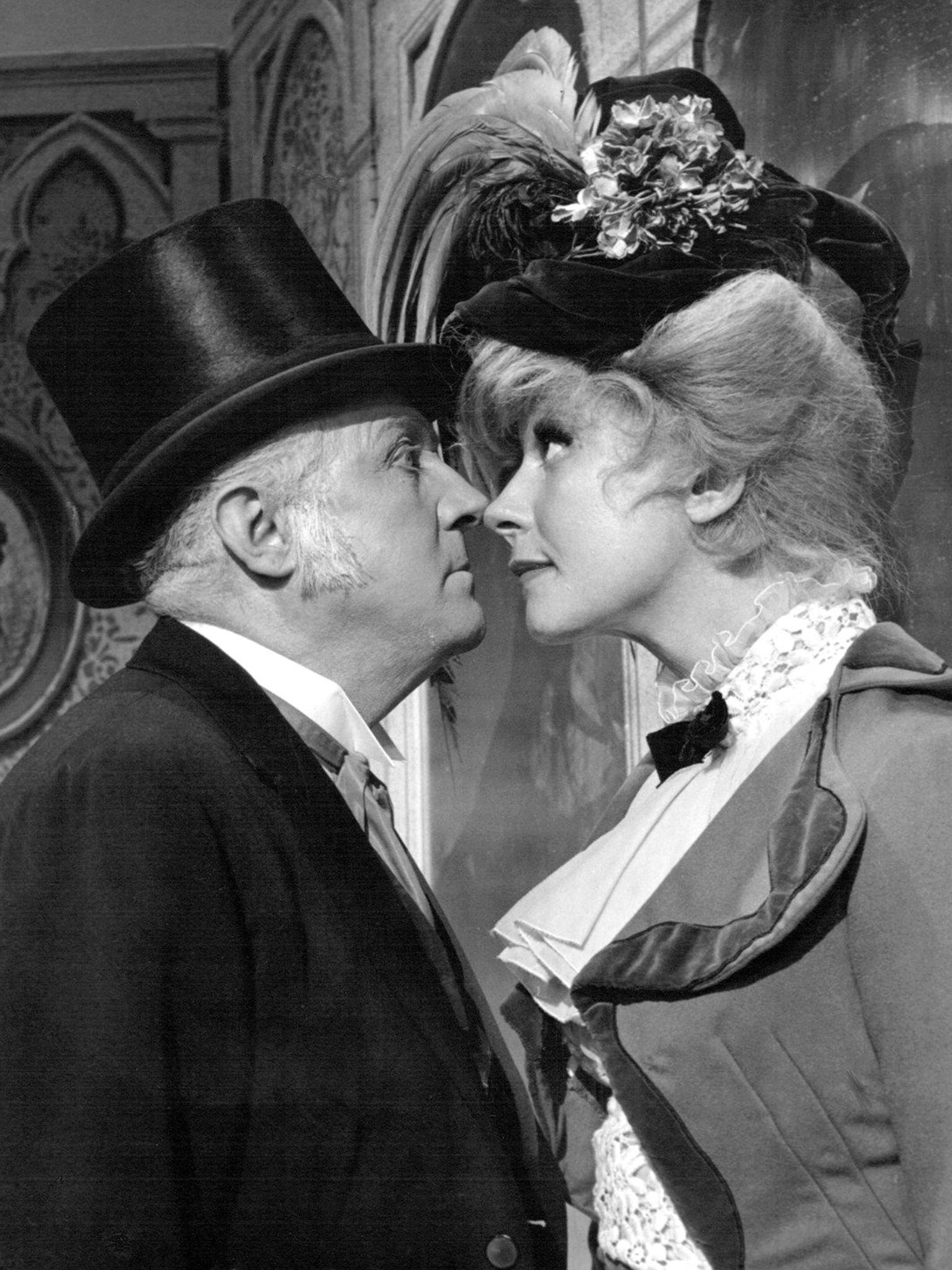Carol Channing: Actor who bestrode Broadway for decades in ‘Hello, Dolly!’ and ‘Thoroughly Modern Millie’
Despite keeping her black ancestry a secret, she failed to break through in Hollywood but remained a stalwart of her professional home – New York’s theatreland

Your support helps us to tell the story
From reproductive rights to climate change to Big Tech, The Independent is on the ground when the story is developing. Whether it's investigating the financials of Elon Musk's pro-Trump PAC or producing our latest documentary, 'The A Word', which shines a light on the American women fighting for reproductive rights, we know how important it is to parse out the facts from the messaging.
At such a critical moment in US history, we need reporters on the ground. Your donation allows us to keep sending journalists to speak to both sides of the story.
The Independent is trusted by Americans across the entire political spectrum. And unlike many other quality news outlets, we choose not to lock Americans out of our reporting and analysis with paywalls. We believe quality journalism should be available to everyone, paid for by those who can afford it.
Your support makes all the difference.Carol Channing was the raspy-voiced, saucer-eyed, wide-smiling actor who played lead roles in the original Broadway musical productions of Gentlemen Prefer Blondes and Hello, Dolly!
She delivered an Oscar-nominated performance in the 1967 film version of the musical Thoroughly Modern Millie.
Channing, who has died aged 97, was a gangly, dynamic, irrepressible presence on Broadway for more than seven decades. Platinum blonde and standing 6ft tall, she made her breakthrough impression on audiences and critics as the beguiling gold-digger Lorelei Lee, from Little Rock, in the 1949 production of Blondes.
Her rendition of two of the show’s most memorable songs, “Diamonds Are a Girl’s Best Friend” and “A Little Girl From Little Rock”, launched her career. The New York Times called her portrait of Lee a “most fabulous comic creation”.
The production ran for two years on Broadway and was followed by an extensive national tour. It was based on a 1920s book by Anita Loos, who wrote the play with Joseph Fields, and featured music by Jule Styne and lyrics by Leo Robin.
Channing later told an interviewer that, given her unconventional look and voice, she was a nontraditional choice to play Lee.

“Anita Loos, who picked me when she wrote ‘Diamonds Are a Girl’s Best Friend’ for Broadway, said, ‘Either get the cutest, prettiest little girl in town as Lorelei, or someone who can do a terrific satire’,” she said.
Channing so seamlessly disappeared into the character of Lee that some of her collaborators questioned whether she could ever play another part as convincingly.
The role continued to dominate her career long after she appeared, to much praise, in musicals such as Wonderful Town (as a replacement for Rosalind Russell in 1954) and The Vamp (1955), a satire about a farm girl who becomes a silent-era screen star. She was also a frequent collaborator onstage with George Burns in an act that combined comedy, song and dance.
Then, in 1964, Channing largely managed to wipe away the memory of Lorelei Lee with her starring role in Hello, Dolly! as an aggressive, shrewd, ever-optimistic matchmaker. Based on Thornton Wilder’s eponymous play, it featured music and lyrics by Jerry Herman and a title song that became a pop standard. But it was Channing who defined the show’s spirit.
Playing Dolly Gallagher Levi, a life-embracing widow determined to remarry into money, she imbued the show with a depth of warmth and personality. Channing triumphed over Barbra Streisand, who appeared on Broadway in the musical Funny Girl, to win the Tony Award for best actress.
Her electric stage personality did not translate to a notable screen career, however. Her best-remembered Hollywood performance was in 1967’s Thoroughly Modern Millie, a musical set in the Roaring Twenties and starring Julie Andrews and Mary Tyler Moore. Channing played an eccentric widow named Muzzy Van Hossmere.
Despite acclaim for her work in Gentlemen Prefer Blondes and Hello, Dolly!, Channing was not asked to reprise either of the signature roles in the film versions. Marilyn Monroe was given her role in Gentlemen Prefer Blondes, which was filmed in 1953; Streisand starred in the 1969 film production of Hello, Dolly!
Channing resented being overlooked for the Hollywood productions and was particularly critical of having Streisand “steal” the role of Levi for the much-hyped film version. She was gleeful when the film tanked, later telling one interviewer: “Barbra is one of our great creative forces, but a barrel of laughs she ain’t.”
In 1974 she received another Tony nomination when she reprised the role of Lorelei Lee for the musical Lorelei, which featured updated songs and a revised script from the earlier source material.
She was honoured in 1995 for her work on Broadway with a Tony for lifetime achievement. About that time, she embarked on a worldwide tour of Hello, Dolly! – still in the leading role. At 74, she was still captivating as Dolly.
Carol Elaine Channing was born in Seattle in 1921. She grew up in San Francisco. Her father, a journalist and Christian Science lecturer, was a strong influence on her life. Channing, who remained committed to Christian Science beliefs throughout her life, never drank or smoked. According to her 2002 autobiography, Just Lucky I Guess, her mother revealed to her at 16 that her father was half black and warned her to keep the family racial heritage a secret.
Channing’s interest in the stage evolved from a bid for the student council when she was seven. Instead of giving a speech, she got up and did impressions of the teachers. Making students laugh convinced her of her talent for performing. She briefly attended Bennington College in Vermont before heading to New York to pursue acting.

In her memoir, she wrote of auditioning for Abe Lastfogel, president of the William Morris talent agency, and trying to impress him with “a simple ancient Gallic dirge, in obsolete Vercingetorix French”, sung to the beat of a Haitian drum she brought along.
She added: “I sensed I was losing the great man’s attention, so I said, ‘Wait, Mr Lastfogel, please. I have another song here that the girls at Bennington just love. It’s a Haitian corn-grinding song rendered by the natives as they stomp out the kernels with their feet.”
As he was rushing her to the door, she broke into a Yiddish melody that convinced him of her promise. Lastfogel became her agent.
She first made a critical impression in the 1948 musical revue Lend an Ear. One of her numbers, a satire of 1920s musicals, was praised as a highlight of the show and helped propel her to stardom. The production also introduced Channing to choreographer Gower Champion, who as a director later cast her as Dolly Levi.
Channing wrote in her memoir that Broadway producer David Merrick also played a role in snagging her the lead in Dolly. Although the mercurial Merrick was a feared presence in the industry, Channing said she was fond of him, to a point.
“He was darling,” she once said of Merrick. “He was a great showman. He just wanted to be able to say ‘I hate you’ first.”
Channing’s first two marriages, to writer Theodore Naidish and Canadian football player Alexander Carson, ended in divorce. She had a son from her second marriage, Channing Lowe, who became the political cartoonist for the Florida Sun-Sentinel newspaper.
Lowe took the last name of his mother’s third husband, Charles Lowe, whom Channing wed in 1956. Charles Lowe worked as his wife’s manager and publicist, and he became known for conspicuous bursts of applause and laughter at every Channing performance. The pair were married for 42 years before a bitter split in 1998.
She publicly accused him of being physically abusive, misappropriating her money and having sex with her just twice during the marriage. He denied the charges and sued Channing, alleging defamation, but he died the next year before they formally divorced.
In 2003 she married her childhood sweetheart, Harry Kullijian. He died in 2011. Survivors include her son.
Throughout her career, Channing was known for her grit and commitment to her craft. When she developed an allergy to hair dye in the early 1960s, she began donning wigs to retain her blonde bob. She also glued spiky fake lashes to her eyelids – so frequently, she said, it caused all of her natural eyelashes to fall out.
She played Dolly Levi more than 5,000 times and rarely missed a performance. Over the years, she reportedly performed the show with her arm in a sling, a patch over her eye and even with her foot in a cast.
“Performing is the only excuse for my existence,” she said in 1995. “What can be better than this?”
Carol Channing, actor, born 31 January 1921, died 15 January 2019
© Washington Post
Join our commenting forum
Join thought-provoking conversations, follow other Independent readers and see their replies
Comments